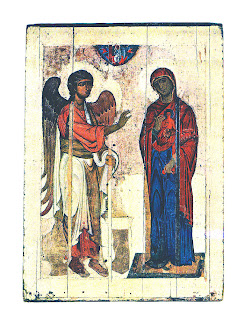Sometimes in one man, many gifts come together. St. Anselm was such a man. He was a renowned philosopher and theologian,
the second Archbishop of Canterbury after the Norman conquest of England in the
11th century, the father of Scholasticism, a Doctor of the Church,
and last, but not least, saint. In the
11th century a new way of thinking developed that combined the
insights of ancient philosophers such as Plato and Aristotle, with the
Revelation of God as understood by theologians.
The person that is considered the father of this movement,
Scholasticism, was Anselm. He deeply
loved the philosophy and theology of St. Augustine and further honed the
necessary philosophical skills that made it clearer to a new audience that
demanded concise and clear thinking. His
efforts influenced the entire Middle Ages and the greatest
philosopher/theologian, St. Thomas Aquinas.
Clear thinking leads to greater understanding. For him theology was “faith seeking understanding”,
so that what we believed led to a better grasp of the mysteries of the
faith. Clear thinking also can lead to
wisdom and fortitude, both gifts that Anselm had. He was exiled twice under the Norman kings of
England for his refusal to bow to their commands in how to administer the
Church. We can benefit from Anselm’s
example to think clearly, love deeply, believe faithfully, and follow Mother
Church obediently. Thus may we too grow
in our understanding of the mysteries of faith and apply the morals of God’s
law to the circumstances of our times.






